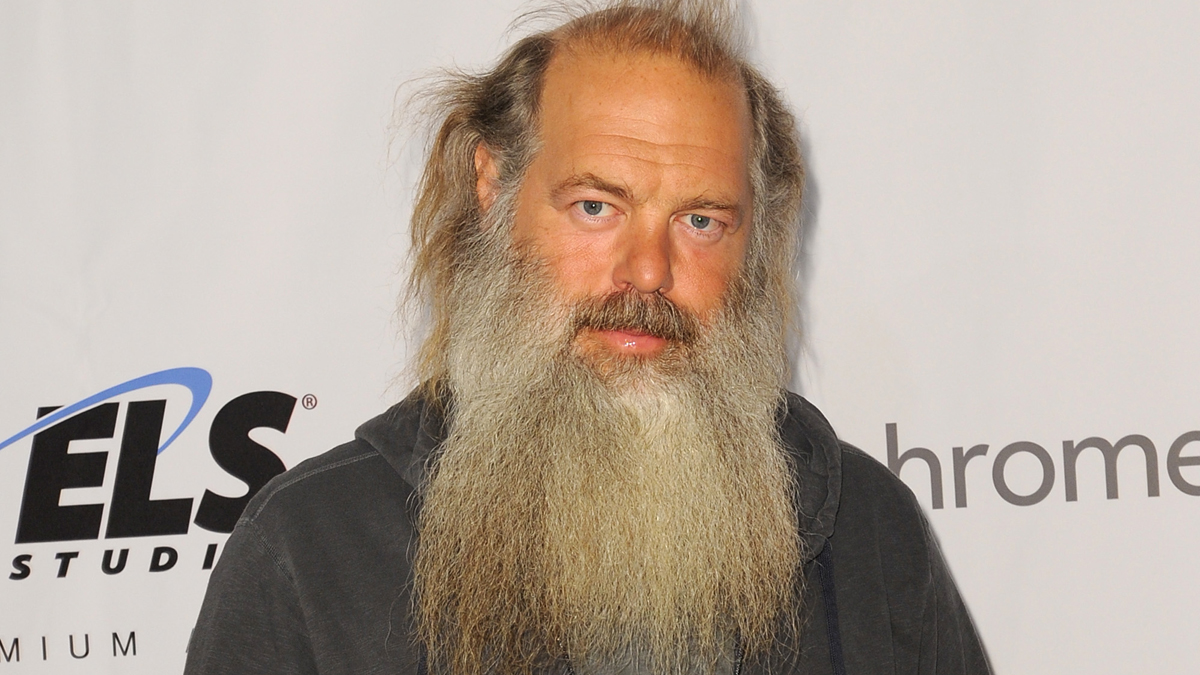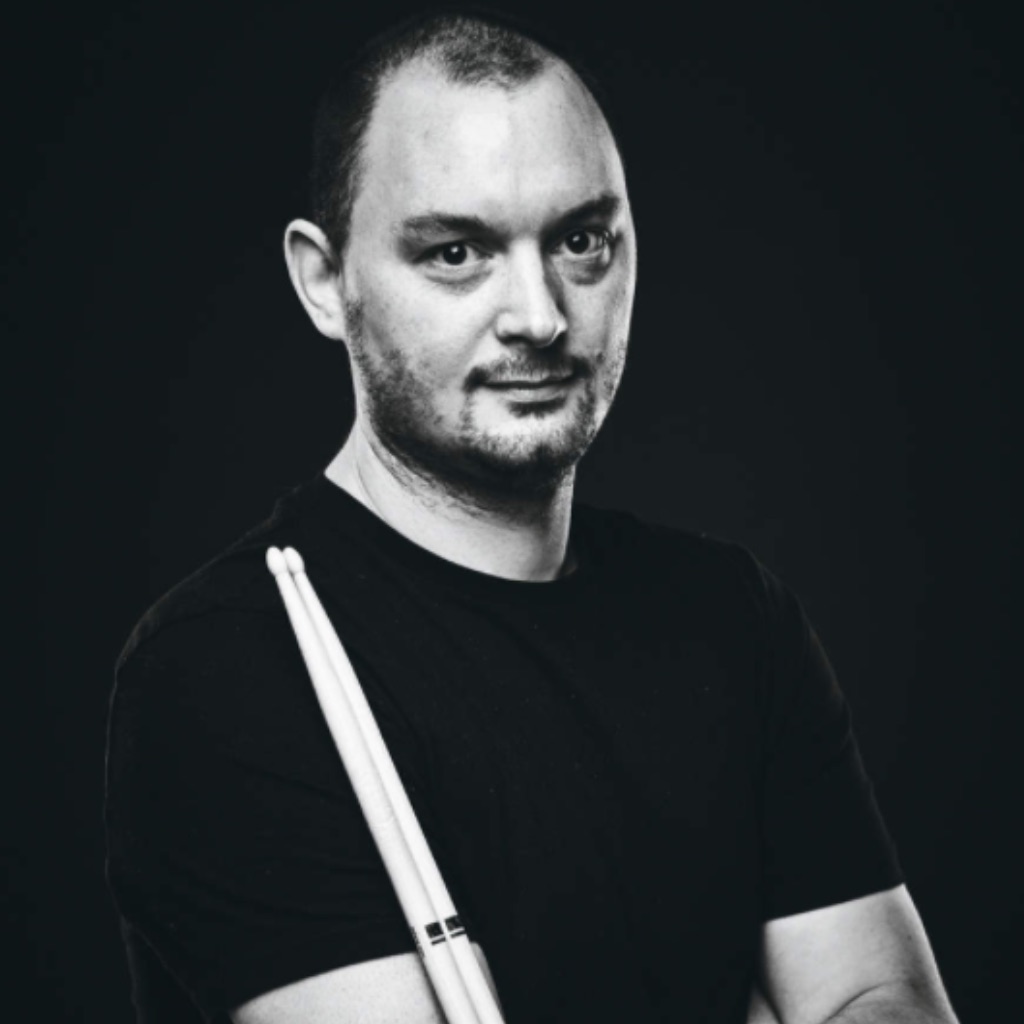"I have no technical ability, and I know nothing about music": Yet here are 5 Rick Rubin-produced songs you need to hear
From hip-hop to rock and pop, Rubin has done it all...

Want all the hottest music and gear news, reviews, deals, features and more, direct to your inbox? Sign up here.
You are now subscribed
Your newsletter sign-up was successful
Famously, Rick Rubin almost brags about his supposed lack of technical and musical knowledge.
Last year, discussing his abilities as a producer on 60 Minutes (below), Rubin was asked if he played any instruments at all. The producer responds, "barely." Host Anderson continues, asking Rubin if he knows how to use a "soundboard" or mixing desk. "No," Rubin answers. "I have no technical ability, and I know nothing about music."
"You must know something." Anderson persisted. "I know what I like and what I don't like. I'm decisive about what I like and what I don't like." Rubin replied.
Pressed by Cooper on what exactly he's being paid for, if not to lend artists his technical ability as a producer, Rubin responded, "The confidence that I have in my taste, and my ability to express what I feel, has proven helpful for artists."
It's a confidence borne out by the super-producer's category-spanning portfolio - he's garnered respect and - some would say - pioneered sounds across a diverse list of genre from thrash metal to hip-hop, country to pop and just about everything in between.
While Rubin’s first recordings as a producer were to facilitate his own punk band, Hose, he moved into working with hip-hop artists after growing tired of hearing early hip-hop recordings that bore little resemblance to the live MC/DJ sets he was experiencing while at college in New York.
Teaming up with MC T La Rock and Zulu Nation’s DJ Jazzy Jay in 1983, Rubin oversaw It’s Yours. A few months later, Rubin was introduced to Russell Simmons who was impressed by Rubin’s drive and command of the Oberheim DX drum machine for making authentic beats that resembled the breaks MCs would rap over.
Want all the hottest music and gear news, reviews, deals, features and more, direct to your inbox? Sign up here.
Together, they formed Def Jam Recordings, which, with the introduction of LL Cool J, Beastie Boys, Run DMC and (a few years later) Public Enemy, cemented its position as one of the most important labels during the ‘golden age’ of NY hip-hop.
By 1986, Rubin expanded on the rock and hip-hop fusion to bring us what many consider as the first proper convergence of the two worlds with Run DMC and Aerosmith’s re-imagined version of Walk This Way. From here, Rubin signed thrash metal titans, Slayer to Def Jam, helping to deliver the seminal album, Reign In Blood.
Rubin has continued to jump between, covering everything from Americana classics, rock, metal, pop, and beyond, with a list of credits that reads like a history of the last four decades of music.
Rubin would leave Def Jam shortly after, and went on to start Def American Recordings - later dropping the ‘Def’ and holding a literal funeral for the word as he felt it had become too widely accepted as part of the mainstream lexicon. “When advertisers and the fashion world co-opted the image of hippies, a group of the original hippies in San Francisco literally buried the image of the hippie. When ‘def’ went from street lingo to mainstream, it defeated its purpose,” he said.
His signings through this era focussed on rock, working with The Cult and The Jesus and Mary Chain. The ‘90s would see Rubin start his stint with Red Hot Chili Peppers, recording breakthrough album Blood Sugar Sex Magik at his Laurel Canyon house/studio, The Mansion.
Rubin has continued to jump between genres ever since, covering everything from Americana classics, rock, metal, pop, and beyond, with a list of credits that reads like a history of the last four decades of music. While he’s often criticised for the projects he oversees - pushing them past their sonic breaking point, and having an unorthodox, zen-like approach to producing (including meditation and walking-meetings with the artists during sessions) - his success is undeniable.
With hundreds of millions of albums sold that feature his name on the sleeve, we could pick more than five songs for every one of the artists he’s worked with. Here, we’ve picked a selection that displays just some of the diverse range of music that’s benefitted from Rick Rubin’s oversight.
1. Johnny Cash - Hurt
By the early ‘90s, Johnny Cash’s career had started to wane. Rick Rubin, however, witnessed Cash’s performance at Bob Dylan’s 30th Anniversary concert and approached The Man In Black with a view to producing his next album.
Rubin did away with the ‘showbiz’ Cash, returning the production style to the original stripped-back performances of his early career. So began a partnership that would last for the rest of Cash’s life and beyond.
For many, it’s American IV: When The Man Comes Around that tops the six-strong series, an introspective album steeped in impending closure and made up of covers except for three Cash-penned songs. Amongst Depeche Mode’s Personal Jesus, Simon and Garfunkel’s Bridge Over Troubled Waters, The Beatles’ In My Life and closer We’ll Meet Again sits one of Johnny Cash’s biggest career moments: his version of Nine Inch Nails’ Hurt.
Originally written by Trent Reznor during one of his lowest points, Cash - by Reznor’s own admission - made the song his own, intensified by Rubin’s barebones production.
The song features a doubled acoustic guitar, piano, organ/harmonium pads and Cash’s distinctive baritone voice. The vocals are recorded so close and dry that it feels like you’re sitting in the booth with him, and the fact that the vocal track begins to distort is a perfect example of Rubin’s performance-over-perfection approach when it comes to recording.
It’s hard to make acoustic instruments reach a crescendo as unsettling as the electronics on Reznor’s original, but here, the creeping rise brings the song to an uneasy close that would go on to bring audiences of the video to tears.
2. Red Hot Chili Peppers - Scar Tissue
1999’s Califronication saw the second coming of seemingly perennial guitarist John Frusciante after leaving the band between 1992 and 1998. Rubin produced the RHCP breakthrough, Blood Sugar Sex Magik and follow-up One Hot Minute, but Califoornication was, to many fans, the natural successor to Blood Sugar…
The album not only achieved what seemed impossible during the years in between - reuniting a recovering heroin-addicted Frusciante with the rest of the band - but gave the Chilis an explosive comeback after their somewhat ‘wilderness’ period in the mid-’90s.
The hits were flowing, with Frusciante’s trademark Hendrix/Parliament guitar style back at the forefront. And while Californication is often held up as an example of Rubin’s marriage to the loudness wars - brickwall limiting into clipping - it also backs up his reputation for svengali-like mentoring of artists.
First single, Scar Tissue, is a great example of Rubin’s less-is-more approach to instrumentation, with the parts pretty much limited to the core band line-up of one guitar, bass, drums and vocals.
While other producers might have encouraged more layers under Frusciante’s sparse solo, bass ace Flea simply moves into the guitar register while maintaining the low end with a pedalled bassline across the octaves.
It’s a laid-back affair that represents the album’s title perfectly, and clipped drums or not, we wouldn’t change a thing.
3. Slayer - Raining Blood
Compare Slayer’s third album to debut Show No Mercy and Hell Awaits and there’s an instant marked difference. While Dave Lombardo’s drums are, at times, buried on Show No Mercy, and Hell Awaits - although a sonic improvement - lacks definition, Rubin’s presentation of Slayer is once again trimmed back by comparison.
The snares crack on every beat; Lombardo’s groundbreaking bass drums punch through; and the guitar picking bites with attack that means you hear every note.
Raining Blood is the ‘hit’, with its evil-sounding chromatic riff, tempo changes that will snap your neck and drum/guitar parts that remain classics today. Equally impressive is that all of this is crammed into 4:15 seconds, with Rubin’s fat-trimming tightening up the arrangements with hardcore punk-inspired economy, and bringing a fresh clarity to the overall sound of the band.
His association with Slayer also produced an unlikely collaboration between Beastie Boys and Kerry King, with King’s shredding and whammy bar antics providing the solo on No Sleep Till Brooklyn.
4. Ed Sheeran - Bloodstream
Part of the enigma of Rick Rubin is that, while he might have overseen classics with hip-hop and rock titans, he’s also no stranger to working with pop megastars. Adele, Lady Gaga and Lana Del Rey are just a few who have benefited from Rubin’s steering over the last decade.
In 2014, Rubin was behind the glass for four songs on Ed Sheeran’s sophomore album, X.
The standout is Bloodstream, written by Sheeran, Snow Patrol’s Gary Lightbody and Rudimental’s Johnny McDaid, and reportedly inspired by Sheeran’s brush with MDMA at a wedding in Ibiza which caused him to “fall in love with a beanbag”.
The track itself is led by two acoustic guitars, backed by a post-club, slowed-down four-to-the floor beat. It’s yet another example of Rubin’s dry, close sound, interspersed with backing vocals dripping with ambience.
By the time we get to the chorus, the song opens up with synth string pads adding width, and additional reverb on the snares adding to the trippiness.
The arrangement frequently jumps between the dry/wet sounds across sections before the end of the song turns into a detailed wall of looped vocal phrases, backing vocals and additional synths, proving that Rubin’s productions aren’t just about the bare minimum.
Bloodstream conjures the aesthetic of the title, and we’d advise listening on headphones to pick out the detail.
5. Jay-Z - 99 Problems
We could have filled this list 99 times over solely with Rubin’s contributions to hip-hop, but instead we’ve opted to go with his monster hit with Jay-Z, 99 Problems.
The track is a perfect cross section of old-school hip-hop collage production harking back to Rubin’s earlier work: the interpolated main line/chorus (borrowed from Ice-T’s tune of the same name); the drum track built from samples of Billy Squier’s The Big Beat, Mountain’s Long Red and Wilson Pickett’s Get Me Back On Time Engine #9; and almost zero melodic content (the guitar part is based around the beginning of The Big Beat).
Jay-Z vents on the trappings of success and the industry wanting to exploit him, beefs with other rappers (Nas) and addresses the racial inequality that is as relevant today as it was when 99 Problems was released 16 years ago.
Rubin gets a shout out during the outro, “You’re crazy for this one, Rick, it’s your boy!”, and looks totally at home flanking Jay-Z in the song’s video.

Stuart has been working for guitar publications since 2008, beginning his career as Reviews Editor for Total Guitar before becoming Editor for six years. During this time, he and the team brought the magazine into the modern age with digital editions, a Youtube channel and the Apple chart-bothering Total Guitar Podcast. Stuart has also served as a freelance writer for Guitar World, Guitarist and MusicRadar reviewing hundreds of products spanning everything from acoustic guitars to valve amps, modelers and plugins. When not spouting his opinions on the best new gear, Stuart has been reminded on many occasions that the 'never meet your heroes' rule is entirely wrong, clocking-up interviews with the likes of Eddie Van Halen, Foo Fighters, Green Day and many, many more.





